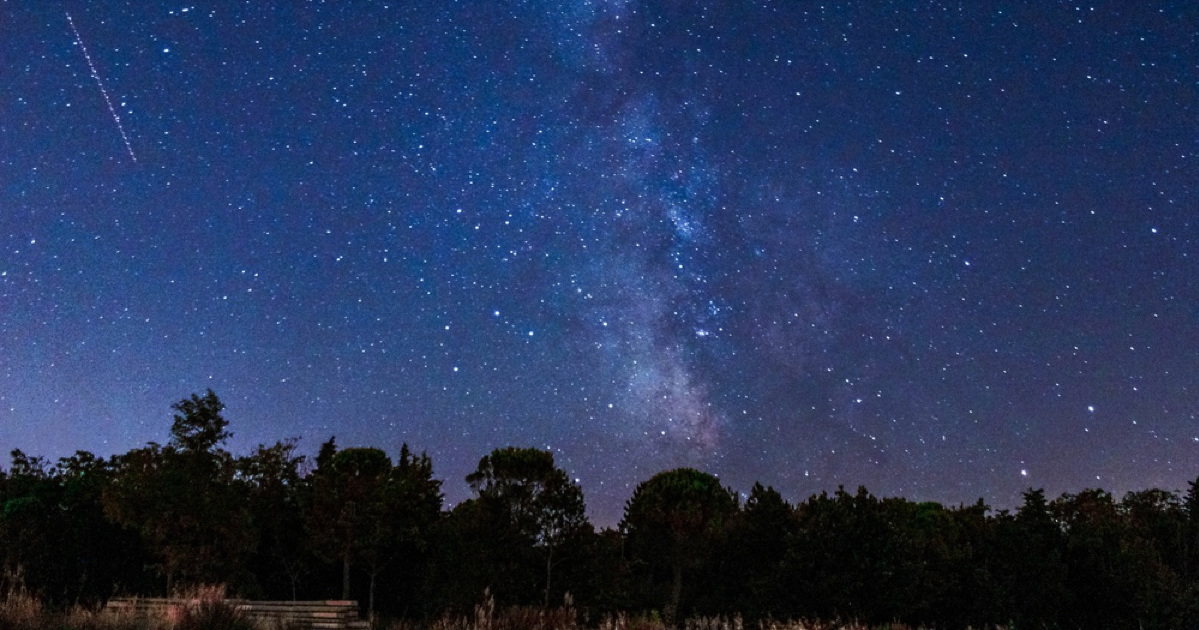It’s summer. We’re outdoors at night more than other seasons. Then, when people think about becoming more familiar with the night sky, the various stars and constellations, they often think that a telescope is required. And while it’s true that good views of planets, nebulae and galaxies do require a telescope, there’s a lot one can learn by an organized effort with the naked-eye. In fact, one can argue that a good familiarity with the constellations is an important starting point for all things astronomical. This linked article has great information on exactly how to become a good naked-eye stargazer
Check It Out: How to Become a Good Naked-Eye Stargazer

I pointed my binoculars at the Pleiades about 4 years ago. I was amazed. I don’t know why it didn’t occur to me that binoculars would do so much. Like Geoduck said, most people have them. Just grab them and point up at night. You might also be amazed.
I did buy a used telescope soon after. Showing the moon to my neighbors through that is interesting. There’s a relization that “wait, this is LIVE.” It’s not only live, it’s real. We’re so used to seeing digital photography and videos of anything we want that seeing something for yourself has become novel.
SO TRUE. I taught astronomy for several years. At every planetarium I worked at we were always getting that question “My son/daughter/nephew/brother is interested in Astronomy. What telescope should I buy.” We always said the same thing. Until they know the constellations, they won’t be able to find anything. Start with a good book, Field Guide to the Stars and Planets, or for the real beginner the Golden Guide, Stars. Learn to find out where things are in the sky, and then think about magnification. Next, if there’;s a decent pair of binoculars available, use them. They are portible, most houses already have a pair, and it’s more natural to use both eyes. You can see all sorts of things, from how rough the moon is, to the fuzz around the Orion nebula and a few of the brighter globular clusters, to multiple stars with binoculars. Once they have gone as far as they can with that, only then think about a telescope.
And that’s a whole different question.